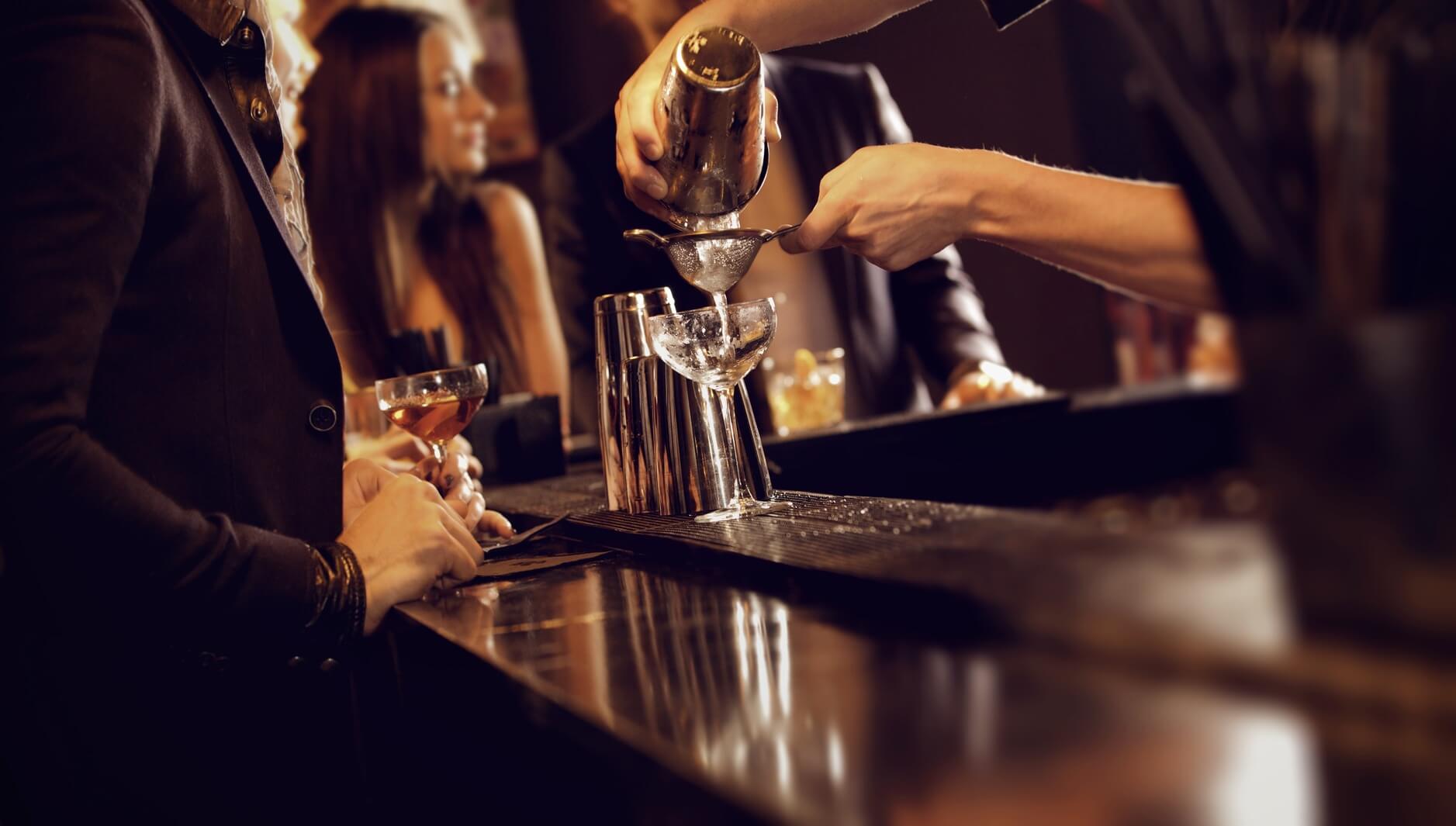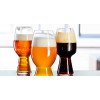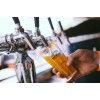Bartender Guide
A bartender (also known as a barkeep, barman, barmaid, bar chef, tapster, mixologist, alcohol server, flair man or an alcohol chef) is a person who formulates and serves alcoholic or soft drink beverages behind the bar, usually in a licensed establishment. Bartenders also usually maintain the supplies and inventory for the bar. A bartender can generally mix classic cocktails such as a Cosmopolitan, Manhattan, Old Fashioned, and Mojito.
Bartenders are also usually responsible for confirming that customers meet the legal drinking age requirements before serving them alcoholic beverages. In certain countries, such as Canada, the United Kingdom, and Sweden, bartenders are legally required to refuse more alcohol to drunk customers.
Bartenders history
Historically, bartending was a profession with a low reputation. It was perceived through the lens of ethical issues and various legal constraints related to the serving of alcohol.
The pioneers of bartending as a serious profession appeared in the 19th century. "Professor" Jerry Thomas established the image of the bartender as a creative professional. Harry Johnson wrote a bartending manual and established the first bar management consulting agency.
At the turn of the 20th century, slightly less than half the bartenders in London were women, such as Ada Coleman. "Barmaids", as they were called, were usually the daughters of tradesmen or mechanics or, occasionally, young women from the "better-born" classes who had been "thrown upon their own resources" and needed an income.
The bartending profession was generally a second occupation, used as transitional work for students to gain customer experience or to save money for university fees. The reason for this is because bartenders in tipping countries such as Canada and the United States can make significant money from their tips. This view of bartending as a career is changing around the world, however, and bartending has become a profession by choice rather than necessity. It includes specialized education — European Bartender School operates in 23 countries.
Cocktail competitions such as World Class and Bacardi Legacy have recognized talented bartenders in the past decade and these bartenders, and others spread the love of cocktails and hospitality throughout the world.
How to become a Bartender with No Previous Experience?
1. Meet the requirements. You must be at least 18 years old to work as a bartender. Check with your city/state to clarify the specific requirements.
Alcohol awareness classes cover DUIs, fake IDs, Blood Alcohol Levels (BAL), serving alcohol to minors, preventing intoxication, and other related issues.
2. Do one or both of the following. Some bars hire new bartenders who have completed bartending school, while others prefer to promote their own barbacks/cocktail waitresses to bartending positions.
Complete bartending school. Each bartending school is different, but most classes will teach you how to prepare hundreds of different kinds of cocktails, deal with intoxicated patrons, prepare garnishes, pour liquor, and differentiate between different types of beer and wine.
Find a job as a barback or cocktail waitress. Barbacks are bartenders' assistants. Duties include collecting empty glasses, preparing garnish trays, getting ice, wiping down the bar, and restocking supplies. Cocktail waitresses are responsible for delivering alcoholic beverages to patrons in bars, music venues, and other drinking establishments. Both of these positions will give you hands-on experience working in a bar setting and prepare you for a future bartending job. Let your employer know that you are interested in working as a bartender so that he or she can notify you when new positions become available.
3. Get practice. Regardless of what route you choose to take, it will take a great deal of practice before you will feel comfortable running a bar on your own. Most bars offer training to new employees and will start new bartenders off working alongside a seasoned bartender in order to gain supervised experience.
4. Find work as a bartender. Bartenders can work in a variety of establishments including restaurants, bars, clubs, hotels, casinos, and music venues. Send out your resume to several different establishments in your area and check your local listings for job openings.
If you already have a job as a barback or cocktail waitress, then set up a meeting with your supervisor to discuss the prospect of being promoted to a bartending position.
Being a Good Bartender
1. Know the qualities required of a bartender. Bartending might sound like a fun, carefree job, but it can also be very tiring and stressful at times. Consider whether you have the qualities of a good bartender:
Strong people skills. Bartending is an extremely social job. You must enjoy being around people of all different backgrounds and be prepared to interact with intoxicated patrons.
2. Good memory. Bartenders must memorize the recipes for hundreds of different kinds of cocktails and be able to keep track of which patron ordered what drink. A good memory allows you to remember your regular patrons and their regular orders. Knowing their drinks make them feel important and welcomed. This leads to repeat business and better tips.
3. Sales skills. Most bartenders are paid minimum wage and rely on tips to make their money. Friendly, accommodating, and charismatic bartenders are most likely to receive good tips.
Ability to multi-task. Bartenders often serve several different customers at the same time and must juggle mixing drinks with counting money and making a change.
Ability to work under pressure. Bartending can be stressful, especially if you work at a busy bar and are the only bartender on duty.
4. Deal with drunk patrons appropriately. Bartenders are legally required to refuse service to patrons who are visibly intoxicated. Many bartenders do not realize that they can also be held legally responsible for accidents that may occur to a customer from over serving them. If your drunk customer leaves and hurts themselves or someone else, you and the bar can be held responsible. You will need to learn to recognize when a patron has had enough, and in some instances, ask him or her to leave the bar.
Intoxicated patrons can become defensive, rude, and even violent when confronted, so it's important that you have an assertive personality and not be too shy to stand up to these kinds of people.
5. Update your craft. In addition to learning the "classics," bartenders must also stay up-to-date with new cocktails and be knowledgeable about which kinds of drinks are trending at any given point in time.
Anyway, hope you can find a job that you want:)
Related Articles
Search
Categories
Popular Posts























Comments: 0
No comments